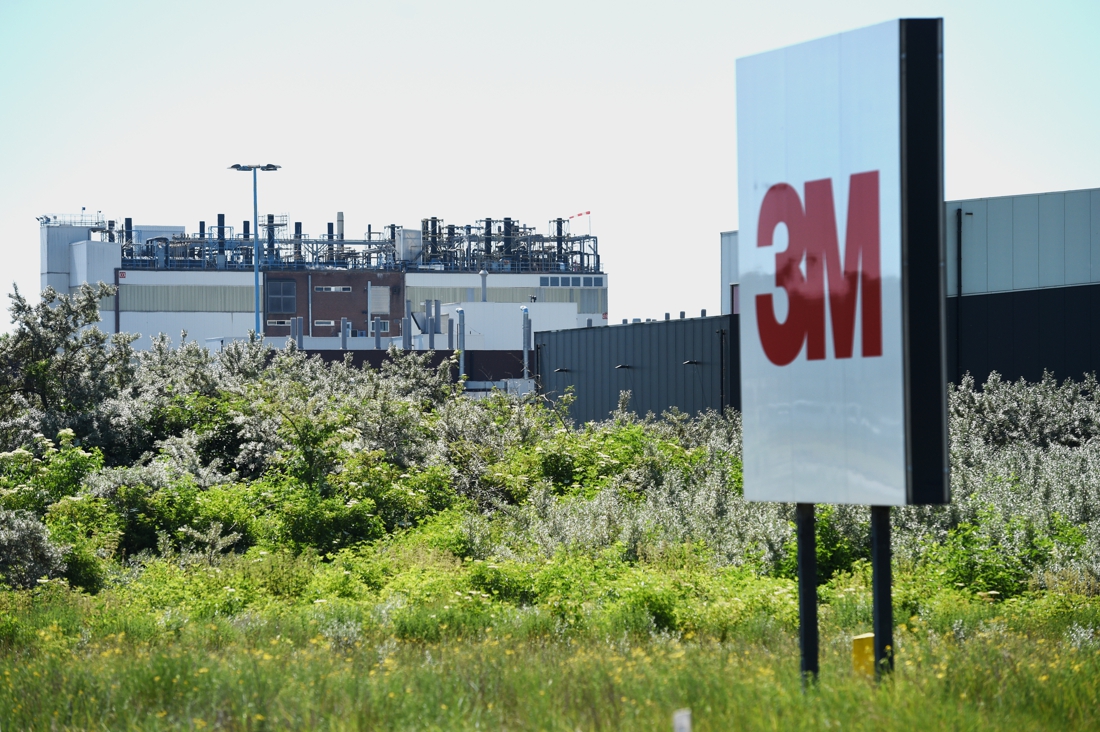The blood test of 796 residents of Zwijndrecht who live within a radius of three kilometers from the 3M factory showed that 59 percent had too much PFOS in the blood. Flemish Environment Minister Zuhal Demir (N-VA) threatens to shut down production if 3M cannot prove that it does not expose local residents to additional risks.
–
Last summer, 796 residents living near the 3M factory in Zwijndrecht had their blood tested for the presence of PFAS. 13 PFAS types were examined. For the type of PFOS, more than half (59 percent) of the participants appear to have a value that is too high from a health perspective. Those who live closer to the factory usually have higher values, as do those who eat eggs from their own chickens and use groundwater.
The guideline values are ‘safe’ only for 9 percent of the participants. On average, higher values were measured in those closer to 3M, although other risk factors have been identified.
After hearing the results, Minister Demir says that she will have the company impose a safety measure via the Environmental Inspectorate. ‘The patience has run out. 3M must demonstrate in black and white that they do not expose the environment to additional risks. If it does not do this within two days, 3M must immediately stop all production processes that lead to emissions until it can provide that proof,” Demir said in a press release.
On Tuesday morning, the municipality of Zwijndrecht already had access to the results. Alderman of the Environment Steven Vervaet (Green) called them ‘worrying’. ‘Our citizens must now adhere to the ‘no regrets’. They have to make an effort for something that is absolutely no fault of their own. But where is 3M’s regret that caused the pollution? They continue to use certain PFAS, polluted sand remains, and now they have even announced that they will appeal against the revised discharge permit from the province.’
Vervaet hopes that there will soon be more clarity about how the spread of PFAS has progressed. Discharges into waste water are known, but the municipal authorities suspect that airborne dispersion, including during the production process, has had a much greater impact. In addition, Vervaet points out that the blood test was limited to 796 people, while there were many more candidates. ‘People really want to know what’s going on now.’
dr. Vera Nelen of the Provincial Institute for Hygiene: ‘This group was large enough to provide a reliable picture of PFAS exposure in this region. So even people from whom we have not taken a blood sample will get a good idea of their own exposure with these results.’
Lifestyle Habits
The study establishes a number of connections between the characteristics or lifestyle habits of participants and their blood values. ‘The results show on average higher PFAS serum levels in participants who live closer to the factory and in participants who live longer in the area,’ says Ann Colles van Vito (Flemish Institute for Technological Research).
‘This suggests an influence of the presence of this industry on body exposure. For example, by eating eggs from the area, the pollution present can end up in the body. We also see that the use of lubricants for, among other things, maintenance of your bicycle or saddles can be a source of exposure,” says Colles.
‘No regret measures’
The ‘no regret measures’ taken earlier are now being extended and expanded. For example, the radius within which vulnerable people should not eat home-grown vegetables is extended to 3 kilometers. The most vulnerable people, such as children under the age of 12, pregnant women and people with a weakened immune system, were also not allowed to eat home-grown vegetables within a radius of 1.5 kilometers. The latter area is now being extended to 3 kilometers around 3M. Within a radius of 5 kilometers it is recommended for everyone else to wash home-grown vegetables well before consumption.
– .


